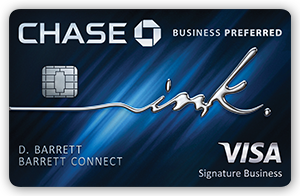World travelers have much to consider when choosing a credit card ideal for their globetrotting lifestyle. Is the card business friendly? Are there international fees? Do I earn travel rewards with my purchases? This is why it’s so crucial to choose the right international card, because choosing the wrong one can mean the loss of thousands of dollars in rewards and incentives annually.
What to consider when selecting your international credit card
There are a number of factors you should consider if you want to get optimum savings and rewards out of your international credit card. The very first is whether your card will even be accepted by most vendors throughout the world. That’s where the chip comes in. EMV (Europay, Mastercard and Visa) technology is quickly becoming the global standard for card payments. Point of sales terminals read this implanted computer chip in order to authenticate transactions. Needless to say, selecting Visa or Mastercard as your international card of choice all but ensures it will be accepted at most POS locations across the globe.
But the chip isn’t the only thing to consider. Benefits, rewards, incentives—all those things that whet our consumerist appetites—are factors too. After all, they mean big savings. Some people like to earn free airline miles when they use their card. Some may like discounts at hotels. Others may want low interest rates and annual fees, even if the overall incentives are skimpy.
There are also signing bonuses to think about. Most banks offer sign-up bonuses for new cardholders that offer thousands of credit for whatever point system these banks use. The value of the individual points are often negligible (usually around once cent per unit), but depending on the bank’s offer, the total value can be in the hundreds of dollars. The list we’ve outlined below has taken all these factors into account, and our three top choices should suit any type of international jet-setter.
The Ink Visa by Chase is the best card on our list for business travelers. This is due to a number of reasons. First, it utilizes chip technology. That means there are few places around the globe where you can’t use it. The sign-up bonuses are nothing to scoff at either. New cardholders who spend $5,000 in the first three months after opening their account will receive 80,000 bonus points, which represents $1,000 of total travel rewards. The card is particularly great for those who run small and medium businesses because it offers a number of incentives geared towards industry. For example, for every dollar spent on purchases like internet, cable, phone and even social-media ad buys, the cardholder receives three points (up to the first $150,000 spent). The points never expire and they’re worth 25% more when redeemed for travel purchases like airfare, hotel and car rental. So, during any calendar year, active cardholders can maximize their bonuses to the tune of 450,000 ultimate rewards points, which represents around a 6% return on total spending. Not too shabby. As for the particulars, Chase charges an annual fee of $95 plus a variable APR starting at 16.99%.
Citibank boasts that their Prestige card is the best for travel, hands down. It’s certainly a solid option for frequent travelers—particularly those who rack up nights in hotels. First, Cardholders earn “Thank You” points, which can be redeemed for benefits like $250 in air travel credit and access to VIP airport lounges. However, to the previous point, users receive a free fourth night in any hotel anywhere when they make the purchase with the Prestige card. That’s right: any hotel, any price. The only thing the cardholder has to pay is the taxes on the room. Other incentives include discounts on vacation packages and cruises, as well as expedited re-entry into the U.S. with the Global Entry application credits—great for those who are constantly waiting in immigration lines. Citi Prestige cardholders also have access to Priority Pass airport lounge. Moreover, with this card you’ll earn three points for every dollar spent on air travel and dining purchases, and two points for every dollar spent on entertainment. Like with the Chase Sapphire Preferred card, Citi Prestige doesn’t charge foreign transaction fees. However, their interest rate is formidable and can top 24% annually depending on the cardholder’s credit rating. That said, they offer a signup incentive where new cardholders receive $75,000 bonus points (worth $937 in flight purchases) for the first $7,500 they spend on the card in the first three months.
Barclay’s World Elite Mastercard can be used at most POS locations throughout the world. New World Elite cardholders will receive 40,000 bonus miles (and with each mile representing $0.01, that comes out to $400), after they spend $3,000 in the first 90 days of owning the card. Moreover, you’ll receive twice the miles on every purchase you make, meaning you can really stockpile those incentives for whenever you do travel. The WE Mastercard even has a redemption incentive that gives the customer 5% of their miles back every time they redeem. And every time you hit the 1,000-mile redemption threshold they’ll automatically credit 50 of those miles back into your point balance. These miles will never expire and you can redeem them for travel rewards or even cash-back credits. What makes this ideal for the occasional traveler is that there are no restrictions on the miles: you can redeem them with any airline or hotel chain, and there are no blackout dates. So you don’t have to worry about expiration if you go months or years without traveling. Bonus that there are no foreign transaction fees with the World Elite card (and business travelers know how quickly those pesky little charges can add up). Finally, Barclaycard waves their interest rate for the first year, with a variable annual rate starting at 16% applying thereafter.


